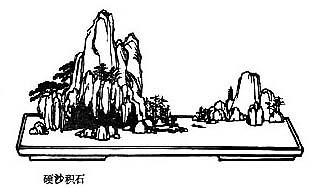孫
子
兵
法
Sun Zi 
 – L'Art de la guerre
– L'Art de la guerre
La stratégie chinoise ou comment s'informer, estimer, diviser, détourner, tromper, et vaincre « sans coup férir ». Tr. Amiot (fr) et Giles (en).
Des neufs sortes de terrain
Sunzi XI. 24.
Lorsque vous aurez tout disposé dans votre armée et que tous vos ordres auront été donnés, s'il arrive que vos troupes nonchalamment assises donnent des marques de tristesse, si elles vont jusqu'à verser des larmes, tirez-les promptement de cet état d'assoupissement et de léthargie, donnez-leur des festins, faites-leur entendre le bruit du tambour et des autres instruments militaires, exercez-les, faites-leur faire des évolutions, faites-leur changer de place, menez-les même dans des lieux un peu difficiles, où elles aient à travailler et à souffrir. Imitez la conduite de Tchouan Tchou et de Tsao-Kouei, vous changerez le cœur de vos soldats, vous les accoutumerez au travail, ils s'y endurciront, rien ne leur coûtera dans la suite. Les quadrupèdes regimbent quand on les charge trop, ils deviennent inutiles quand ils sont forcés. Les oiseaux au contraire veulent être forcés pour être d'un bon usage. Les hommes tiennent un milieu entre les uns et les autres, il faut les charger, mais non pas jusqu'à les accabler ; il faut même les forcer, mais avec discernement et mesure.
Amiot
On the day they are ordered out to battle, your soldiers may weep,1 those sitting up bedewing their garments, and those lying down letting the tears run down their cheeks.2 But let them once be brought to bay, and they will display the courage of a Chu or a Kuei.3
Giles XI.28.

L'Art de la guerre – Sun Zi XI. 24. – Chinois on/off – Français/English
Alias Sun Tzu, Sun Wu, Sun Tse, Sunzi Bingfa, Souen Tseu, Souen Wou, 孫武.
Le Canon des Poèmes, Les Entretiens, La Grande Étude, Le Juste Milieu, Les Trois Caractères, Le Livre des Mutations, De la Voie et la Vertu, 300 poèmes Tang, L'Art de la guerre, Trente-six stratagèmes
Bienvenue, aide, notes, introduction, table.
Index – Contact – Haut de page
